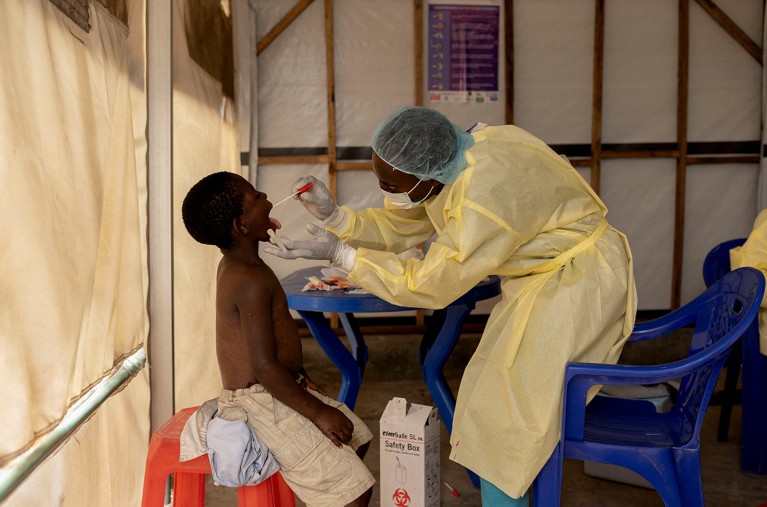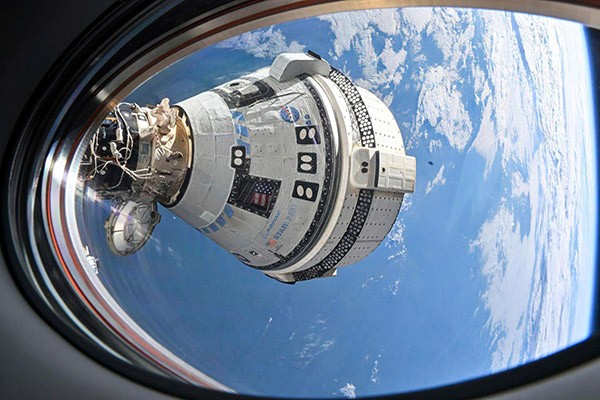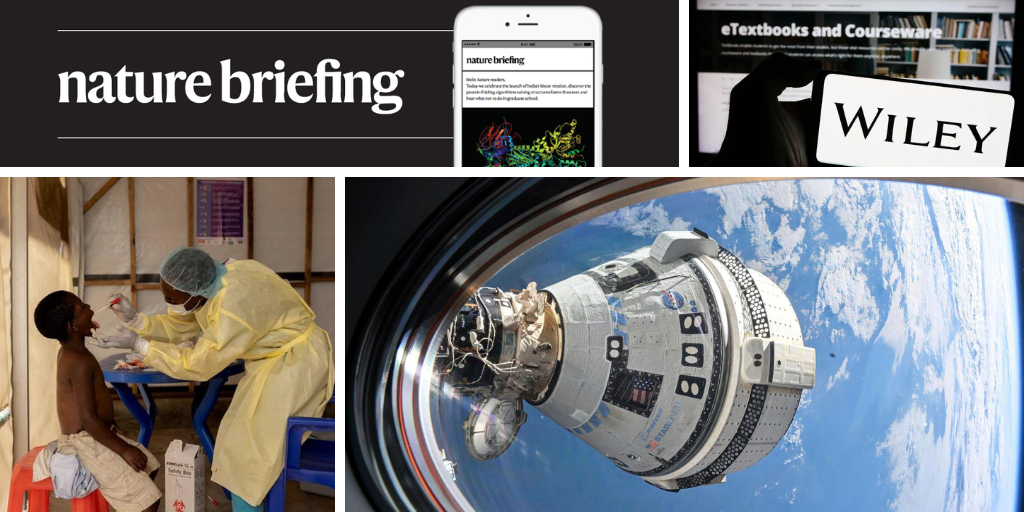Hello Nature readers, would you like to get this Briefing in your inbox free every day? Sign up here.

A nurse takes a sample from a child suspected of having mpox.Credit: Arlette Bashizi/Reuters
A concerning strain of the monkeypox virus has spread rapidly across central Africa in the past few months. The outbreak prompted the Africa Centres for Disease Control and Prevention to declare its first-ever public-health emergency on 13 August and the World Health Organization (WHO) is meeting as I write to consider a global declaration. The moves reflect scientists’ deep concern that the outbreak of mpox, the disease caused by the monkeypox virus, could evolve into an epidemic that spreads across the continent — and possibly beyond.
Artificial-intelligence developers are buying access to valuable data sets that contain research papers — raising uncomfortable questions about copyright. Anything that is available to read online — whether in an open-access repository or not — is “pretty likely” to have been fed into an LLM already, says AI researcher Lucy Lu Wang. “And if a paper has already been used as training data in a model, there’s no way to remove [it].”
Researchers are using state-of-the-art climate chambers to explore when blistering conditions threaten life — and the limit is lower than we thought. “If you look at heat advisories from well-respected organizations like the US Centers for Disease Control and Prevention, the World Health Organization, they’re fraught with errors when it comes to human physiology,” says physiologist Larry Kenney. Many are based on a theoretical model that gives a ‘wet-bulb temperature’ (which accounts for the effects of heat and humidity) of 35 °C as the limit at which a young, healthy person would die after six hours. In a 2021 study based on data from real people, Kenney and his colleagues found a survival limit of around 31 °C, and it is likely to be even lower depending on the conditions.
Reservoirs 11.5 to 20 kilometres below the surface of Mars might hold liquid water. If so, it would be the first found on the planet. The evidence comes from data gathered by NASA’s InSight lander, which retired in 2022. InSight monitored seismic waves created by Marsquakes, which suggest that the planet has a layer of fractured rocks saturated with liquid water deep underground.
Features & opinion
Natural products made by bacteria, small molecules discovered with the help of AI and immune-boosting drugs are just some of the strategies researchers are investigating as new ways to fight bacteria that are increasingly resistant to existing antibiotics. Most conventional antibiotics approved in recent years are simply variants of a known class and can be used for just a few years before resistance emerges. Scientists are turning to new strategies to head off what some are warning could be pandemic caused by once-treatable infections. “We have to run in order to stay in place,” says microbiologist Kim Lewis.
The issue of sexual harassment among conservation biologists in India became more prominent last year, when women started described their experiences on an Instagram account called Women of the Wild India. Nature interviewed 12 female researchers who say they were harassed while working at Indian conservation biology organizations. The stories point to a broader pattern of misconduct and verbal abuse by some high-ranking researchers towards younger women in their charge. In theory, the country has a powerful sexual-harassment law to protect women, but it doesn’t always work in practice. “Unfortunately, courts don’t treat sexual harassment with much seriousness,” says lawyer Vrinda Grover.
“Folding into origami-like shapes, it can pull off wild stunts that make its genetic parent, DNA, look like a one-trick pony,” writes chemist Thomas Cech. In The Catalyst, Cech tells the behind-the-scenes story of the discoveries that led to RNA stealing the limelight from DNA. Cech’s own Nobel-prizewinning discovery of RNA behaving like an enzyme supports the idea that life might have started with RNA. Today, RNA shines in medicine, whether its mRNA vaccines to fight viruses like COVID, or CRISPR RNA — taken from bacteria — for gene editing. In just over a decade, the use of CRISPR for gene editing has become so ubiquitous that, Cech says, “it’s become a verb, like ‘google’”.
Image of the week

NASA via AP/Alamy
In this view through the window of the SpaceX spacecraft docked to the International Space Station, Boeing’s Starliner spacecraft is shown docked nearby. Beset by teething troubles, the Starliner was not able to return with astronauts Butch Wilmore and Suni Williams as planned on 13 June. Their stay could end up lasting many months — meanwhile, they’re running short on clean clothes and Wilmore is camping out in a sleeping bag. (Time | 5 min read)


